At Tasting Britain, despite a love for the finer things in life (and by ‘finer’ we mean things that are ample in alcohol, sugar and calories – occasionally all at once), we’re usually of the same opinion of the venerable physician Hippocrates, who was thought to have said “Let food be thy medicine and medicine be thy food”. So, with that in mind, it always makes sense to try and combine food and nutrition related information in a writeup, if we can. SO JUST WATCH ME TRY
After all, it’s hard to enjoy your dinner when you’re dead, isn’t it?
Enter Mark Sisson (who is very much alive at this time of writing). Possibly you’re familiar with the name. Almost certainly you’re familiar with the Paleo Diet, or as Mark prefers to call it ‘The Primal Blueprint‘. It claims that returning to the way we’ve spent the last few hundred thousands years evolving to eat will make us healthier and happier. What do you think?
And yes, despite many calling it a ‘fad’, and the inevitable (and somewhat sickening) commercial scrabble to milk some pennies out of the Paleo scene, there’s actually some very strong science supporting it. Don’t believe me? Google it.
Anyway, I’ll shut up now and let Mark (who is very articulate – he’s an author, don’t you know), do all/most of the talking…
Read on and Grok on…
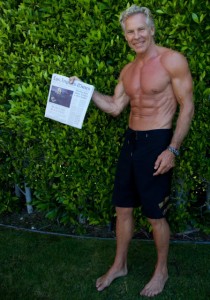
Full name: Mark Sisson
Role: Former elite triathlete, best selling author, blogger, speaker, super healthy guy
DOB: 07/14/53
Birthplace: Boothbay Harbor, Maine
Twitter Handle: @Mark_Sisson
Website: www.MarksDailyApple.com, www.PrimalBlueprint.com,
J: Hi Mark, thanks for speaking with us. Could you describe to our readers what primal eating and living is all about, and the benefits? A lot of people have latched onto the ‘eat like a caveman’ angle, but there’s obviously far more to it than that!
M: The Primal Blueprint is about acknowledging that our ancient environments – what we ate, how we exercised, how we slept, how much sun we got, how we spent every waking moment in nature – set the stage for our physiologies today. They were the developmental environments for our bodies. Today’s common, chronic health problems, like diabetes, heart disease, depression, Alzheimer’s, are likely caused by an evolutionary discordance – by the rapid departure from those ancient lifestyles under which our bodies evolved.
What’s it like being one of the ‘fathers’ of the modern primal/paleo movement? How long have you been a part of it, and how did it get started for you? I read that your background was as an endurance guy but you got burnt out on the conventional approach to healthy eating. How did you come to this way of life?
I was an endurance guy, and it was the excessive amounts of training required to be at the top of the marathon/triathlon game that made me reconsider what “healthy living” actually meant. See, I was doing all the right things: running dozens of miles each week, eating lots of whole grains, maintaining low body fat and a sub-2:20 marathon. But I was sick. I was broken down, miserable, always in pain, and constantly coming down with some illness. I pretty much had no choice but to find another way. Primal was it.
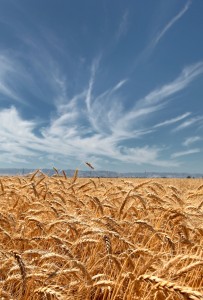
What’s a ‘day in your life’ like? Could you give us an insight into how you’re living the primal life and running the primal business?
I get up around 7, have a cup of coffee, and log a couple hours of work. Then, I’ll hit the gym, get a bit more work done, and have lunch – usually a Big Ass Salad. I try to wrap things up officially by five, but I’ll usually answer emails and do some research at night (though I’m trying to reduce this).
How does the primal philosophy apply to the kitchen?
In a way that I think most chefs would find familiar. Focus on high quality ingredients. Use real food. Cook from scratch; no boxes. Keep it simple enough and develop some go-to dishes so that you don’t need to bust out the recipe book each time you want to cook.
As food goes, what are your primal staples and your primal ‘no-no’s’?
Staples? Good ruminant meat – beef, bison, or lamb. Always grass-fed. Thick gelatinous stock. Fresh leafy greens. Berries, usually blackberries or raspberries (frozen if not in season).
No-nos? Grains, especially gluten-containing grains like wheat, barley, rye. Refined sugar. Industrial seed oils like corn oil, soybean oil, canola oil, sunflower/safflower oil.
Primal fine dining – is this a thing? I read of a restaurant opening in Germany that was specifically paleo/primal in it’s culinary approach.
Oh, it’s coming. But anyway, fine dining is actually quite amenable to the Primal way of eating because they use high quality ingredients, eschew seed oils, love butter, use lots of healthy fats, and make everything from scratch. Just skip the bread basket and don’t order pasta and you can usually find something very good to eat.
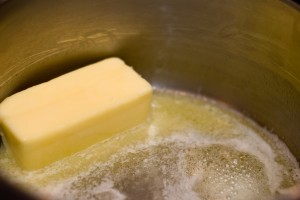
Primal… booze? Tell me this is a thing! If it isn’t, what do you think is the best way to do it and the best/least damaging things to drink?
Oh, yeah. A nice red wine is my go-to adult beverage. Tequila’s not bad, either, if you like the hard stuff. And don’t tell anyone, but I’ll occasionally sneak a good IPA here and there.
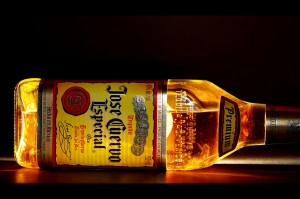
Ethneogens and psychoactive substances have had such an important place in so many of the ‘primitive’ cultures. Do they still have a place in the world of the modern caveman?
You know, I don’t partake myself, but there is an astonishing amount of research coming out of the mental health arena that shows psychedelics may have a therapeutic role to play against depression, addiction, and PTSD. And as you imply, pretty much every hunter-gatherer culture had a tradition of consciousness altering, whether it was through hallucinogenic plants, hypnotic drumming/dancing, meditation, or sweat lodges. That’s gotta make you think there’s something to it. Remember that historically these powerful substances were also used in a “clinical setting” – the shaman’s hut – rather than as recreational drugs, so tread lightly. They aren’t toys.
I’m always amazed at how quickly people are to spring up with a variety of ‘paleo/primal’ alternatives to well…everything – paleo bread, paleo pasta, paleo cake, etc. Do you ever feel that it’s just a way for people to psychologically justify eating the stuff they did before, with a few superfluous tweaks? – or that there’s some merit in all that? Grok probably wasn’t all *that* into baking, right?
As an occasional treat, particularly for people who legitimately cannot tolerate any grains (like folks with celiac disease), they have merit. It’s fun to throw a dinner party and have dessert at the end or serve your lamb liver pate on crusty paleo bread, it’s nice to know that going Primal doesn’t mean total lifelong abstention from “treats.” But for many people, maybe most, these alternatives come dangerously close to becoming staples. They’re often just another way for people to avoid eating real food.
You have kids right? Did you raise them in this way of eating, and how did that work out as they went out to face the distinctly un-primal wider world and it’s array of possibly tempting neolithic foods?
I do. My daughter is 22 and my son is 19, born long before I’d developed the Primal Blueprint. I never got the chance to raise them fully Primal. And besides, kids have their own ideas about food!
My son’s actually (semi) vegetarian! He’s pretty Primal and eats lots of eggs, butter, and some cheese, along with protein powders like Primal Fuel to supplement his protein intake.
The worst thing you can do is create a stressful relationship with food. Just provide healthy stuff at home, give them a solid base, and let them deal with the outside world. If you’re a good role model and make sure they’re eating well with you, they’ll do just fine.
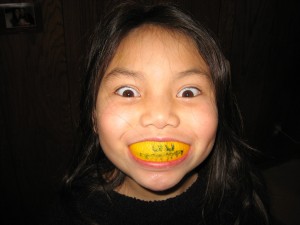
No doubt some of our readers are considering the Primal way of eating for themselves – any tips on how to get started without getting overwhelmed? Maybe some recommended reading or resources?
Well, my blog is a good place to start. Check out the “Primal 101” section and go from there. If books are more your style, either The Primal Blueprint or the Primal Blueprint 21 Day Total Body Transformation are good introductions.
A lot of our readers also love to cook, any personal recommendations on how to get started there? Again, any compelling reading or resources?
Chowstalker.com is a great aggregator of Primal recipes. You can usually find something that looks good and go from there.
We’ve got some great cookbooks, too, as well as an entire section of the website devoted to recipes. Every Saturday, we post a new one.
Believe it or not, a lot of classic cookbooks can also be easily modified to be Primal. I’m a big fan of Julia Child’s stuff, for example. Just omit the grains and you’re mostly good to go.
Do you cook much yourself? What are your most and least favourite foods?
I do enjoy cooking. I just don’t get enough time to do it. When I do have the time, I enjoy putting together a big elaborate dish using tons of ingredients that takes all day to make, like a good lamb curry or a pot of bison chilli or something.
I hate to bake. I hate that most of the process is out of your hands and you’re just hoping for it all to work out. Good thing I don’t eat grains, right?
Did you ever have a point where you knew it was working, or that you’d ‘made it’? Do you remember that point?
Probably when I stopped waking up dreading the rest of the day because I’d have to run fifteen miles, bike fifty, and deal with arthritis, tendonitis, and irritable bowel syndrome.
What’s your ultimate aim and goal for yourself, MDA and the Primal movement? If you could achieve anything with it, what would you pick? Shoot for the moon…
I’m going to cheat and give you two. First, I want to eradicate the chronic, lifestyle-related diseases through widespread adoption of Primal principles. Second, I want to focus on compression of morbidity, so that not only are people living longer, they’re living well right up until their last days. I want to see a nation, a world free of walkers and pill organisers.
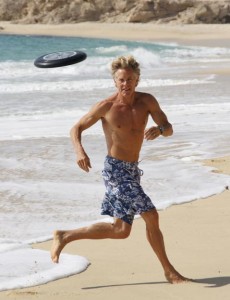
What was the biggest challenge that you’ve had to overcome and what did you learn from it?
My biggest (and still ongoing) challenge has been to overcome the push-pull between my need to stay connected at all times for work purposes and my awareness that such hyperconnectedness probably has drastic consequences for my health and sanity. I’ll let you know when I beat it.
Who’s the person who’s most inspired you in your work? Is there anyone that you draw inspiration or strength from? Do you have any specific culinary influences?
Art De Vany, the godfather of ancestral health, was my earliest inspiration. My earliest essays on health and fitness were guest posts for his blog way back, and it was the response they received that prompted me to take up blogging myself.
My biggest culinary influence would probably be Anthony Bourdain. Not so much for specific dishes or anything, but for his relentless curiosity about, well, everything.
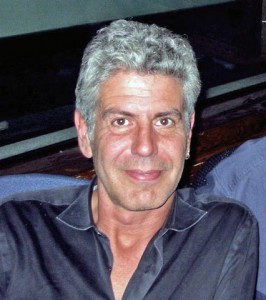
I really admire how you built a community and a great business around your passion. What advice would you give to aspiring food/nutrition entrepreneurs who’d want the kind of results that you’ve had?
Work hard and make lots of friends (and not just in “high places”). Why you should work hard is obvious. Friends can help broaden your audience, provide opportunities, and, if they’re true friends, offer blunt criticism. Both are vital for success in this (and any) industry.
Where next for you, MDA and Primal?
My latest venture, Primal Blueprint Publishing, has already published books from other exciting authors, and we’ll continue with that. Next year, we’ve got PrimalCon Tulum, a luxury health retreat in Tulum, Mexico, as well as PrimalCon Oxnard and PrimalCon Austin. We’re also working on a certification program for fitness professionals.
I’m also writing a new book, Primal Endurance, that will explore maximising human performance while minimising the negative health effects that generally accompany the pursuit of elite athletics. There’s usually a tradeoff between health and performance, and I think we can reduce that by hewing to Primal principles.
And we always ask three customary ridiculous questions…
If you had to go 10 rounds of no holds barred, bare knuckle boxing with any of the dwarves from The Hobbit (you’d probably have the advantage of reach, but not weight!). Who’d you square off against?
Ori. The guy was only allowed to tag along on the adventure for his flute skills, and his go-to weapon is a slingshot – which he’d be without in our brawl. I’d mop the floor with Ori.

If, for some reason, you were forced to turn MDA into a travel agency, what would you call it, what types of holidays and locations would you specialise in and what would your game plan be?
I’d have a travel agency with two focuses/subsections: Primal Adventures and Primal Retreats.
Primal Adventures would focus on immersive excursions to remote locales. At one end, you’d have cross country skiing and dog sledding through Alaskan backcountry, living and hunting with indigenous Amazonian tribes, roughing it on an isolated Thai island. You live in nature as people did for hundreds of thousands of years.
Primal Retreats would be gentler and more luxurious retreats in similar locales. A jungle resort lodge, an Alaskan cruise, Thai beach front cottages. You’re still surrounded by nature. You just have a respite from it when desired.
If, for some reason, you were forced to start a side career as a musical sensation, and were guaranteed to succeed, what sort of music would you produce, what would your first album be called and who would you do a duet with?
Neoclassic (late 60s, psychedelic) rock. It’d be called “Grok On” and I’d do a duet with a zombie Jim Morrison…

Why don’t we give this a try?